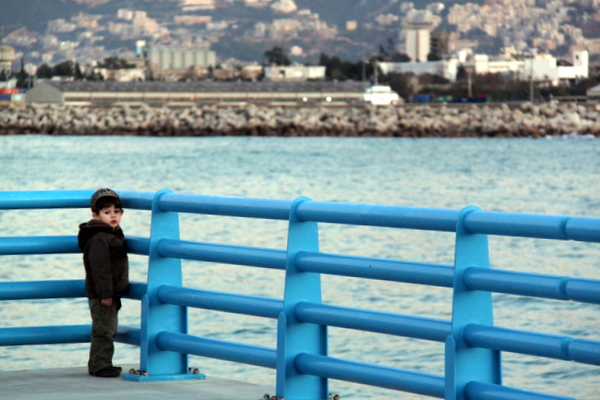A fellow mummy blogger recently raised the prickly question of whether being told you’ve put on weight is a good or a bad thing in Lebanon. In my decidedly bump-shaped past 12 months I’ve certainly had my fair share of comments about weight gain, weight loss and a surprising number of stages in between. Yet with all people have to say about it, it is not easy to detect the general attitude towards weight, as Beautiful Feet says.
Clearly, a more ample figure is the norm here. By that I don’t mean that the Lebanese are bigger in general than, say the English or the Americans. But what is held up to be acceptable is bigger. Whatever the average weight of your woman-on-the-street in the UK, models on billboards or in magazines are invariably thin. Adverts in Lebanon usually show an altogether more realistic kind of weight – though I won’t comment on the realism of specific features since by all accounts and visible evidence plastic surgery is far more common here than in Europe.
On the one hand I have been chided for not being fatter, as if I was letting myself waste away, which I assure you is pretty nigh impossible given the scrumptious Lebanese cuisine and my love of food in general.
On the other hand, I’ve heard people being told in no uncertain terms that they are fatter than they used to be and ought to lose weight. A Lebanese friend got me in her kitchen and lined me up next to her daughter-in-law to quiz us on our height and weight and pointed out – in the sweetest, most genuine manner you can imagine – that said daughter-in-law ought to return to the size she was on her wedding day. Fortunately they have one of those Ruth and Naomi kind of in-law relationships or there could have been sparks.
Once I began gaining pregnancy weight, people seemed happier about my figure. It was nice to put people at ease – I must be normal now I was procreating and fleshing out. They made many a gesture to map the changes in my face and body to demonstrate exactly what it was they saw an improvement in. They even congratulated me for piling on the pounds at times when the scales showed no difference, as if they wanted to find something nice to say even if there was no real change.
Yet a gynaecologist I visited patted me on the bulging stomach and congratulated my husband on not marrying a “grosse patate”. It all seems quite random. And that made me think of what a wise Lebanese friend told me regarding relationships this weekend. She said, “We say a lot but it doesn’t mean a great deal; you say just a word and it really matters. In the end, it boils down to the same thing.”
And she’s right. People here comment on your weight like they comment on the weather or the likelihood of war – both small talk topics. It’s no big deal. Tomorrow they might have changed their mind. In any case they don’t expect you to take it to heart.
Beautiful Feet asks if people would really comment on weight gain to your face if they thought it was a bad thing. And I think that’s the difference – if we notice a “bad thing” about a person it means we expect them to do something about it. Telling people that we think something about them is “bad” would mean insulting them. It’s not our business – ever. But that isn’t the case in the Levant. It’s like the English complaining about the rain. We don’t actually expect it to have an effect on the weather; we accept that the clouds will do as they please, just like people tend to.
While in the West we nurture a growing number of new social taboos, the Lebanese maintain the traditional ones but are free with their opinions on everything else. All it really means is that they have opinions (don’t we all?) and that they cared enough to notice.
One thing is sure – you don’t need to go around worrying about what people are thinking here. They come right out and tell you. It takes some getting used to, but saves the nervous energy spent on all that guesswork.



